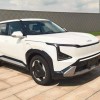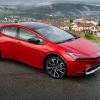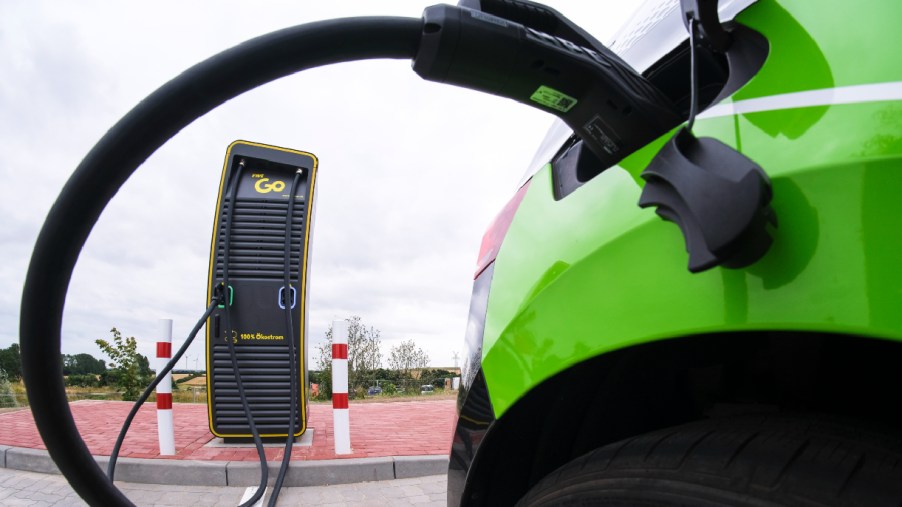
If America Went All-Electric Today, How Much Energy Would We Use?
The shift to electric cars is happening rapidly, and slowly, at the same time. Automakers are shifting toward battery electric vehicles, but charging stations aren’t popping up as fast as we need them to. But for the sake of this article, let’s imagine we got our act together. If America went 100% electric today, how much energy would we be using?
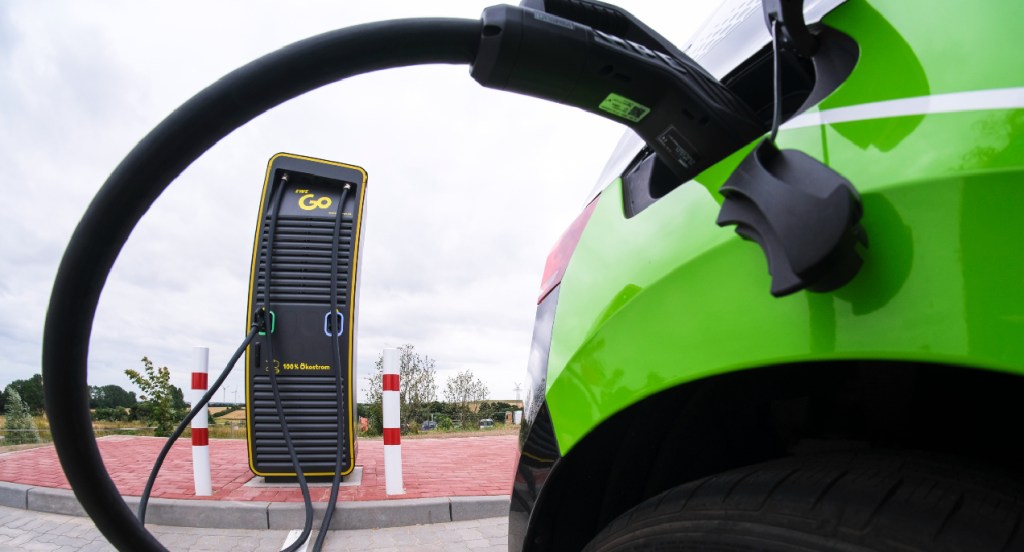
How much energy does an electric car use?
In order to figure out how much energy we’d use altogether, we have to determine how much electricity the average EV uses. Now, this is disregarding any future battery technologies that may come around, going off of the electric cars of today. The technology isn’t perfect, but for the sake of the argument, it’s good enough.
An electric car, on average, uses about 30kWh to travel 100 miles. And despite certain cars boasting ranges up to 700, or even 1,000 miles per charge, the average range of an electric car is just 181 miles. That’s plenty in terms of city commuting and equates to the average car holding about 54kWh of energy.
Now let’s do some rough paper napkin math: there are over 276 million cars buzzing around American motorways right now. Multiply that by the average kWh for electric cars, and you’re looking at over 14 billion kWh of energy we’d have to use to charge every electric car. So now that we know approximately how much energy we’d use, it’s time to figure out how we’d build that infrastructure.
How many charging stations would we need to power every electric car?
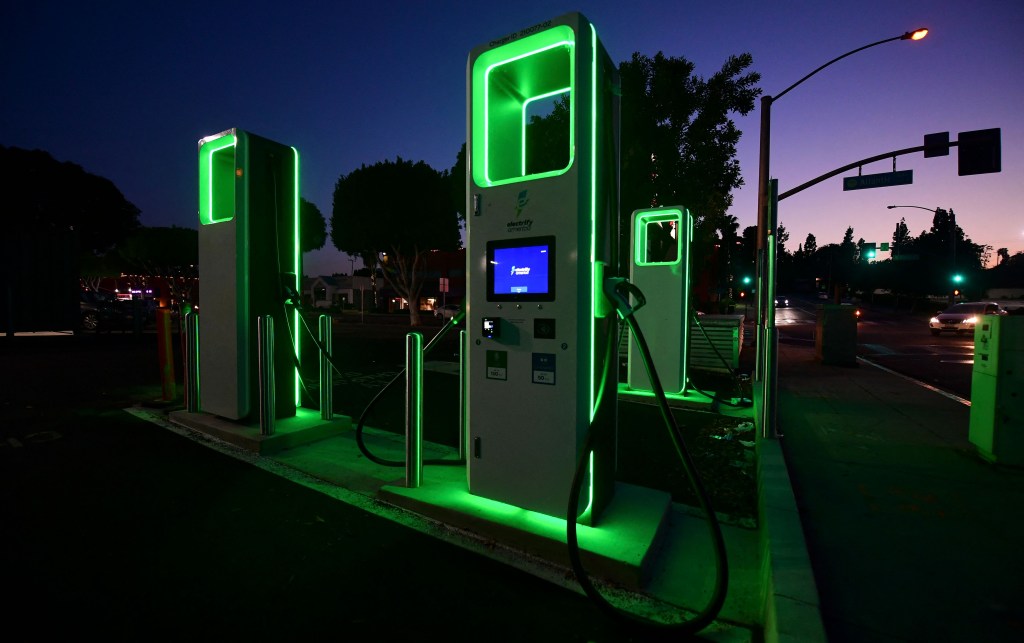
Well, I’ll start with the good news: the ratio of EVs to chargers is better than the ratio of cars to gas pumps. According to EVAdoption, there were almost 100,000 charger ports across the country as of December 31st, 2020, and considering there were about 1.8 million electric cars on the road, that means there were 18 electric cars for every charging station.
By comparison, there are 150,000 gas stations in America, each with an estimated 8 pumps. That adds up to 1.2 million pumps for the 276 million cars on the road. That ratio is 230 cars per pump. Clearly, there isn’t a shortage of gas stations in America, and you don’t need one pump per car. So, if we kept with the average of 230 cars per charging station, we’d need 1.1 million more chargers in order to power 276 million electric cars.
However, electric cars take longer to charge, at least for now. So because they’d be sitting there longer, they’d be filled up more often than not, and you’d need more stations so that there weren’t delays. So, if we wanted to keep that 18:1 ratio, we’d need a total of 15 million charging stations across the country to power all 276 million electric cars.
Now, this is a completely ludicrous number, at least right now, since we clearly don’t need 15 million gas pumps to keep the 99% of gas cars on the road today fueled up. So let’s say we switch every gas station from dino juice to electricity: how much power would that use?
How much power would we use to charge every electric car?
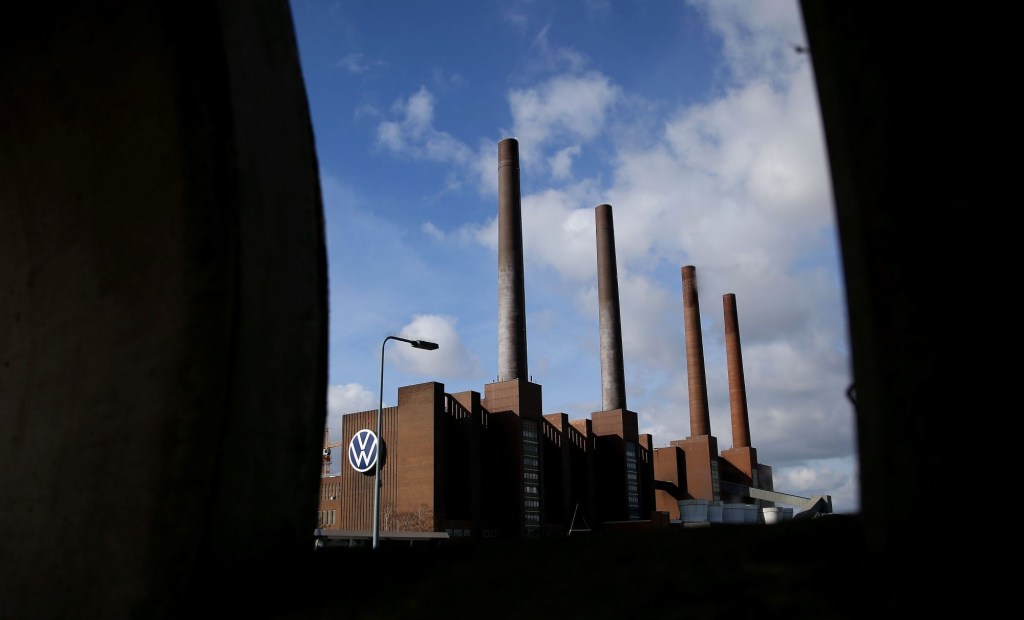
It sounds like I’m repeating myself here, but I’m not. We already discussed that, if every car were electric, we’d need 14 billion kWh of energy to charge them all (on average). But how much energy is that really? Because electric car chargers get their power from different sources, some of which aren’t clean, let’s look at the averages.
The United States generated just over 4 trillion kWh of electricity in 2020, 60% of which came from fossil fuels. And because most charging stations are hooked up to the grid, chances are your EV’s power comes from natural gas and coal in some capacity. Your car is only as clean as its power source.
Now only one question remains: would we have to build more power plants to account for electric cars? Chances are, yes. But because every electric car would be zero emissions, and they’d all share the same power source rather than generate emissions on their own, they’d be significantly cleaner in the long run.
But we’re far from an all-electric future, and even in that shift, we’ll likely see hybrids as an exception. In other words, gas isn’t going anywhere yet, and even once EVs are mainstream, it’ll still be powering our cars.
